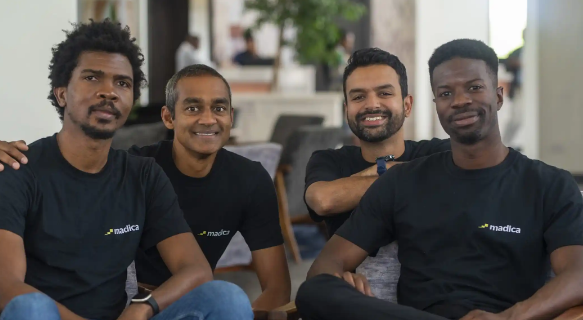Madica stands for “Made in Africa” and aims to close the funding gap. In a statement, Emmanuel Adegboye, the head of Madica, explained that the investment initiative initiated by Flourish Ventures sums to “broaden the pool of capital coming into Africa.” Under the sector-neutral program, which will run for three years, pre-seed firms across the continent will receive up to $200,000 in equity capital.
There are various preferred funding sources for the ICT industry in Africa. In Africa, entrepreneurs raised $5.2 billion last year, but the Big 4 nations—Nigeria, South Africa, Egypt, and Kenya—collected more than 70% of the total. The other 50 African countries raised a total of $1.4 billion, which isn’t much but is a 382% increase from the year before.
The funding gap is not only geographical but also shows up in the grant-receiving sectors. Despite making up only 32% of investment deals, fintech got 63% of funding on the continent last year. Fintech’s dominance is understandable—57% of the continent is still unbanked—but other industries that could help the continent expand and thrive are not given the same attention. Because of this lack of money, there is a need for more funding and research in deep technology, especially in areas like artificial intelligence and blockchain.
Read also: Madagascar, Mauritania Get $36.5m Clean Cooking And $40 M Water Supply Project Funding
Program Budget of Madica
Madica has budgeted an additional $6 million for programmatic support in addition to the $6 million set up for investment funding. Adegboye claims that this aid comes in the form of a network of coaches, mentors, and specialists who can give companies specialized hands-on help.
Program Eligibility
A minimally viable product (MVP), full-time founders, and little to no institutional funding are requirements for startups to be accepted into the program. Startups in the pre-seed stage are still in the ideation stage, where they are trying to design a product and figure out if there is a market for it. When questioned about whether Madica, ideally, paying customers for these pre-seed firms, Adegboye responded that Madica is designed for startups who are at the initial stages of trying to raise institutional finance.
Karim Beguir, the co-founder and CEO of Instadeep AI firm based in Tunisian, stated that “artificial intelligence will drive decision-making and will soon determine the next most powerful government and economy.” Instadeep raised $100 million in Series B funding in January. Beguir has good reason to be confident. An artificial intelligence chatbot named ChatGPT acquired 1 million users in just 5 days. For comparison, Facebook presently has 3 billion users, and it took them a year to grow by just 1 million.
BLNK Raises $32 Million for Instant Inclusive Consumer Credit in Egypt
In a phone call, Adegboye said that with his experience in venture capital and as a founder, along with Flourish Ventures’ knowledge of the continent, they had found that most of the investment in Africa went to the Big 4, fintech, and well-connected male founders.
Adegboye also said that Madica’s plan to include other ecosystem sectors was important because “it takes a diverse group of founders to solve the problems on the continent.” Even though Madica will continue to invest in businesses from the Big 4, Adegboye noted that the program would specifically look for firms from other nations to demonstrate to investors that investing in other African countries is secure.
He continued, “There is a monumental effort to shift that narrative and produce 25 to 30 success stories throughout the continent over the next three years, which will then encourage global investors to think about other industries and nations differently.




